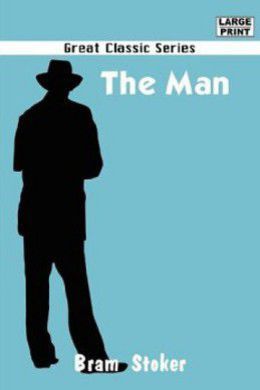
-
EPUB 326 KB
-
Kindle 410 KB
-
Support epubBooks by making a small $2.99 PayPal donation purchase.
Description
“I would rather be an angel than God!” is the very first sentence in Stoker’s fiction “The Man”. It presents his sentimental ideals at the same time conveying his philosophical thoughts. Children have been presented as beacon of light from whom the elders should learn about honesty and innocence. A horror tale is presented that chills the readers to the bones.
418 pages with a reading time of ~6.50 hours (104697 words), and first published in 1905. This DRM-Free edition published by epubBooks, 2010.
Community Reviews
There are currently no other reviews for this book.
Excerpt
Stephen Norman of Normanstand had remained a bachelor until close on middle age, when the fact took hold of him that there was no immediate heir to his great estate. Whereupon, with his wonted decision, he set about looking for a wife. He had been a close friend of his next neighbour, Squire Rowly, ever since their college days. They had, of course, been often in each other’s houses, and Rowly’s young sister–almost a generation younger than himself, and the sole fruit of his father’s second marriage–had been like a little sister to him too. She had, in the twenty years which had elapsed, grown to be a sweet and beautiful young woman. In all the past years, with the constant opportunity which friendship gave of close companionship, the feeling never altered. Squire Norman would have been surprised had he been asked to describe Margaret Rowly and found himself compelled to present the picture of a woman, not a child. Now, however, when his thoughts went womanward and wifeward, he awoke to the fact that Margaret came within the category of those he sought. His usual decision ran its course. Semi-brotherly feeling gave place to a stronger and perhaps more selfish feeling. Before he even knew it, he was head over ears in love with his pretty neighbour. Norman was a fine man, stalwart and handsome; his forty years sat so lightly on him that his age never seemed to come into question in a woman’s mind. Margaret had always liked him and trusted him; he was the big brother who had no duty in the way of scolding to do. His presence had always been a gladness; and the sex of the girl, first unconsciously then consciously, answered to the man’s overtures, and her consent was soon obtained. When in the fulness of time it was known that an heir was expected, Squire Norman took for granted that the child would be a boy, and held the idea so tenaciously that his wife, who loved him deeply, gave up warning and remonstrance after she had once tried to caution him against too fond a hope. She saw how bitterly he would be disappointed in case it should prove to be a girl. He was, however, so fixed on the point that she determined to say no more. After all, it might be a boy; the chances were equal. The Squire would not listen to any one else at all; so as the time went on his idea was more firmly fixed than ever. His arrangements were made on the base that he would have a son. The name was of course decided. Stephen had been the name of all the Squires of Normanstand for ages–as far back as the records went; and Stephen the new heir of course would be. Like all middle-aged men with young wives he was supremely anxious as the time drew near. In his anxiety for his wife his belief in the son became passive rather than active. Indeed, the idea of a son was so deeply fixed in his mind that it was not disturbed even by his anxiety for the young wife he idolised. When instead of a son a daughter was born, the Doctor and the nurse, who knew his views on the subject, held back from the mother for a little the knowledge of the sex. Dame Norman was so weak that the Doctor feared lest anxiety as to how her husband would bear the disappointment, might militate against her. Therefore the Doctor sought the Squire in his study, and went resolutely at his task. ‘Well, Squire, I congratulate you on the birth of your child!’ Norman was of course struck with the use of the word ‘child’; but the cause of his anxiety was manifested by his first question: ‘How is she, Doctor? Is she safe?’ The child was after all of secondary importance! The Doctor breathed more freely; the question had lightened his task. There was, therefore, more assurance in his voice as he answered: ‘She is safely through the worst of her trouble, but I am greatly anxious yet. She is very weak. I fear anything that might upset her.’ The Squire’s voice came quick and strong: ‘There must be no upset! And now tell me about my son?’ He spoke the last word half with pride, half bashfully. ‘Your son is a daughter!’ There was silence for so long that the Doctor began to be anxious. Squire Norman sat quite still; his right hand resting on the writing-table before him became clenched so hard that the knuckles looked white and the veins red. After a long slow breath he spoke: ‘She, my daughter, is well?’ The Doctor answered with cheerful alacrity: ‘Splendid!–I never saw a finer child in my life. She will be a comfort and an honour to you!’ The Squire spoke again: ‘What does her mother think? I suppose she’s very proud of her?’ ‘She does not know yet that it is a girl. I thought it better not to let her know till I had told you.’ ‘Why?’
